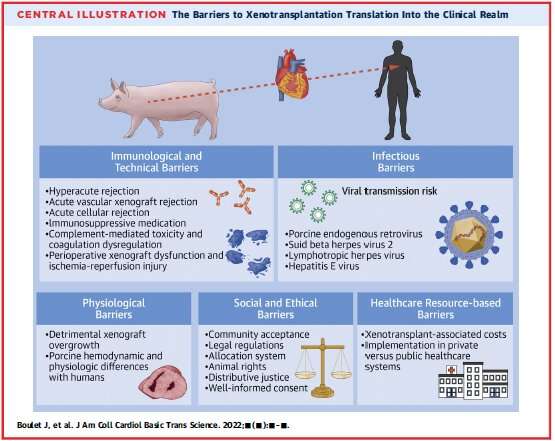Central illustration depicting xenotransplantation immunological and technical barriers, infectious barriers, physiological barriers, social and ethnical barriers, and health care resource-based barriers. Credit: J. Boulet et al, JACC Basic to Translational Science (2022). DOI: 10.1016/j.jacbts.2022.05.003
"The potential for xenotransplantation to allow for an unlimited donor supply and resolve the organ shortage is now closer than ever," according to a new paper published today in JACC: Basic to Translational Science.
Approximately one in 20 heart failure patients will progress to an advanced heart failure stage each year. The growing need for heart transplantations combined with a shortage of suitable donor organs has spurred research interest in xenotransplantation.
In January 2022, a 57-year-old heart failure patient successfully underwent transplantation surgery to receive a genetically engineered porcine heart; the patient survived for approximately two months. In this review, the study authors discuss the 2022 clinical case, along with the innovations, advances, challenges and barriers to successfully transplanting animal hearts into human subjects.
More information: Cardiac Xenotransplantation: Challenges, Evolution, and Advances, JACC Basic to Translational Science (2022). DOI: 10.1016/j.jacbts.2022.05.003
Provided by American College of Cardiology
























